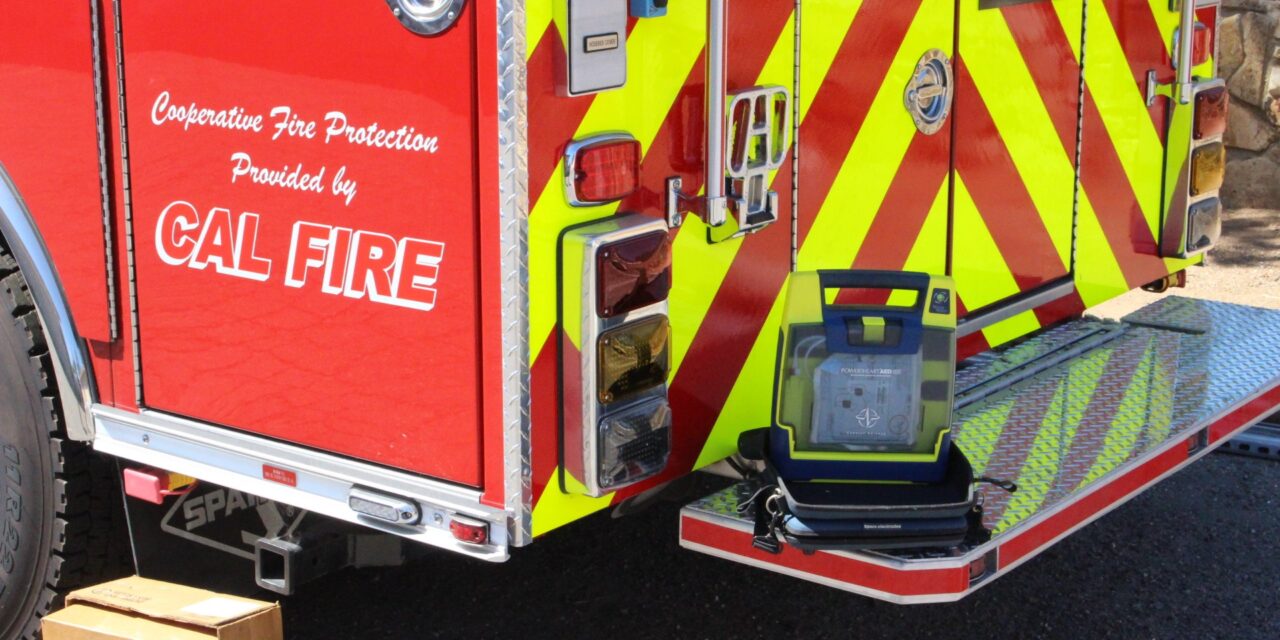SAN FRANCISCO–The California Public Utilities Commission (CPUC), in its ongoing efforts to expeditiously implement Senate Bill 901, today approved utility Wildfire Mitigation Plans for 2019, and made additional improvements to utility communication and notification protocols for proactively shutting down power lines during hazardous conditions that could lead to wildfires from electric equipment failures.
The CPUC acted quickly to ensure that clear rules are in place as early as possible to prepare for the 2019 fire season.
The CPUC determined that the 2019 Wildfire Mitigation Plans filed by Pacific Gas and Electric Company, Southern California Edison, San Diego Gas and Electric, Liberty Utilities/CalPeco Electric, Bear Valley Electric Service, Pacific Power, Trans Bay Cable LLC, and NextEra Energy Transmission West, LLC, contain the elements required under Senate Bill 901. To ensure that the Wildfire Mitigation Plans actually reduce the risk and occurrence of catastrophic wildfires, the CPUC directed electrical corporations to track data and assess outcomes so that future plans reflect this year’s lessons. The proposals voted on are available at www.cpuc.ca.gov/SB901.
“The series of wildfire mitigation decisions that we approved today are an important step forward in California’s work to address the very serious risk of wildfires that is affecting us all,” said Commissioner Liane M. Randolph. “I appreciate the work done by electric utilities, stakeholders, and our own safety experts and attorneys to evaluate the plans on a very rapid timeline. The most important thing is to launch the actions that will reduce our state’s risk of catastrophic wildfires in 2019, and I will be keen to see the results.”
Separately, the CPUC continued its efforts to ensure that electric utilities are working with state and local partners in planning for wildfires and other catastrophes by requiring utilities to improve their communication and notification efforts for proactive power outages, also known as Public Safety Power Shutoffs or de-energization. De-energization events must be a measure of last resort when done proactively by a utility.
Under today’s decision, utilities must work with the California Office of Emergency Services (CalOES) to integrate their warning programs with the agencies and jurisdictions within California that have a role in ensuring that the public is notified before, during, and after emergencies.
Today’s decision also requires utilities to improve customer education and notification on what to do and how to prepare for a de-energization event, and to better coordinate with local governments, who should share in the responsibility for notifying residents.
“While these steps will both make communities safer, and help to prepare for impacts of planned outages, many outages will still occur due to unforeseen damage to electric lines from a variety of sources, including vehicle collisions with poles, wildfires not caused by utility infrastructures, and contact with birds and animals, for example,” said Michael Picker, President of the CPUC.
Utilities must report on lessons learned from each de-energization event in order to further refine their practices. The new requirements are in the proposal voted on today at http://docs.cpuc.ca.gov/PublishedDocs/Published/G000/M296/K234/296234220.PDF. Phase II of this proceeding (R.18-12-005) will more fully address utility communication protocols during a de-energization event itself and during re-energization, as well as other matters related to de-energization.
“I recently met with members of an Oxnard community group, CAUSE, who feared for their neighbors’ safety in de-energization events, because they don’t speak English or Spanish, they speak indigenous languages such as Mixteco,” said Commissioner Martha Guzman Aceves. “Key safety information needs to reach them. The utilities need to understand the communities they serve and do whatever is necessary to reach these folks and other vulnerable populations.”
Added Commissioner Clifford Rechtschaffen, “De-energizing power lines may be necessary as a last resort to avert devastating utility caused wildfires. Today’s decision provides important guidance for how utilities must notify vulnerable populations, first responders, and the public about such events, and other protocols they must follow.”
The CPUC regulates services and utilities, safeguards the environment, and assures Californians’ access to safe and reliable utility infrastructure and services.


